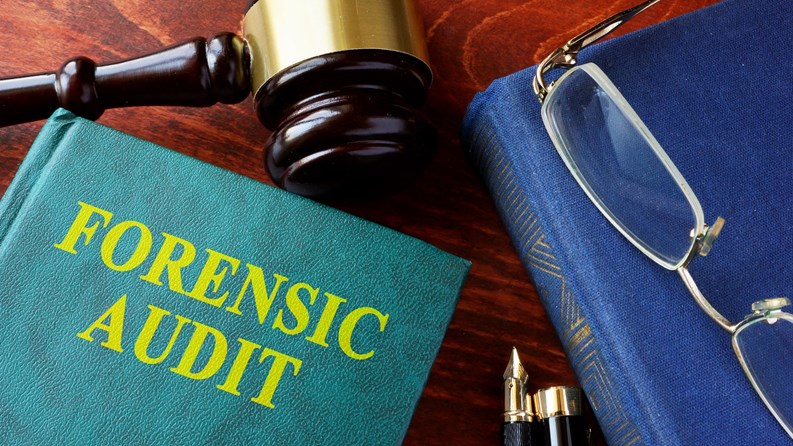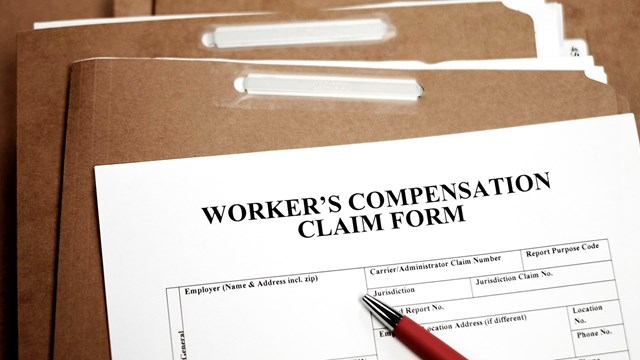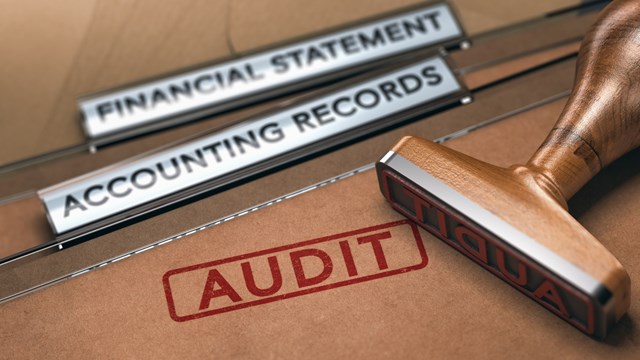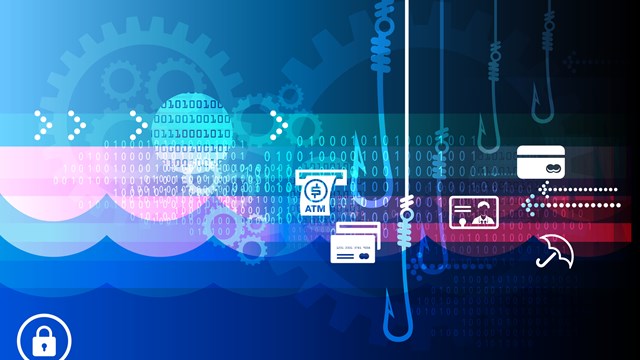Just a few months ago, according to various media reports, property manager Steven Dym of the Queens-based Gabriel Management Corp., was facing a lawsuit for allegedly taking approximately $22,000 from a client. The ultimate result from this case, however, was shocking and tragic: Dym, 56, took his own life, along with the lives of his wife, Loretta, 50, and daughter Caroline, 18, in their Westchester County home, according to a statement by authorities.
Fortunately, cases of fraud and wrongdoing in co-op and condo communities rarely have such a heartbreaking ending. “It’s a horrible story, but [financial fraud itself] is rare, because most condos and co-ops of any size will have several layers of oversight,” says attorney Slava Hazin of the firm of Warshaw Burstein LLP in New York City. “You have the board, a managing agent, and an outside accounting firm that will do the annual financial statement. There are usually more than enough eyeballs so that if someone is stealing or embezzling a significant amount of money, eventually it’s going to come out.”
While the mid-1980s brought a flurry of indictments of property managers cooking the books, taking kickbacks, and defrauding their clients that has yet to be matched, cases still pop up with some regularity. A few years ago, owner Richard Bassik of Downtown Properties was accused of embezzling nearly $2 million from buildings he managed. More recently, bookkeeper Jennifer De Coteau Ulanov was charged with stealing more than $755,000 from a family-owned company that managed residential buildings in Brooklyn. And of course, there are smaller cases that don’t even make it into the newspapers. Keeping your own building or association fraud-free is a matter of proper oversight, transparency, and vigilance on both the board and management’s part.
Raising the Red Flags
Fortunately, even the most cunning schemers eventually leave evidence of their wrongdoing – and a savvy observer may be able to catch them, if they know what to keep an eye out for. During audits, accountants, boards and managers look for various red flags that indicate that there may be fishiness afoot, such as missing cash or suspicious activity.
“A properly budgeted building should meet its operational expenses and build reserves each year,” says Nadav Weg of Bosse Management in Manhattan. “If a building consistently runs into shortfalls without major projects or clear explanation, it may be time to consider foul play. For smaller buildings, self-dealing by board members can be a common issue.”
Mindy Eisenberg Stark is a certified public accountant and certified fraud examiner who has audited 100 New York-area co-op and condo boards. She remembers one case where her co-op client was waiting for a large tax payment. “Management kept saying that they would talk to the IRS,” says Eisenberg Stark. “It turned out that the management company had deposited the funds into their own bank account.”
Nobody likes to be audited. Even if your books are on the up-and-up, having your finances gone through with a fine-toothed comb is an aggravating, stressful experience that everybody studiously avoids. But for co-ops, condos, and HOAs, auditing does have a few far-reaching benefits – one of which is the ability to uncover and correct incompetent or even criminal financial behavior.
“It seems like every day, someone is inventing a new way to steal from a building,” says Richard B. Montanye, managing partner at Marin & Montanye LLP, an Long Island-based accounting firm. “An initial red flag is usually their reluctance to provide information or documents related to the buildings finances. Although it is the managing agent’s job to maintain the financial records of a building, the ultimate responsibility for a building’s finances rests on the board of directors. This unfortunately requires a lot of effort and record keeping.”
Montanye explains that responsible agents will be forthcoming with all pertinent documents, details of purchases, controls, and documentation. “Managing agents who are reluctant to provide documentation and constantly delay in providing details for transactions are certainly suspect,” he says. “In addition, close relationships between board members, vendors, employees, and managing agents can raise suspicions about transactions as well.”
Cash reserves for operations and capital improvements are vulnerable to siphoning through fraudulent transactions concealed as normal disbursements. “Understanding the [projected] cash flow of a building will help detect fraud in its early stages,” says Eric A. Kreuter, an accountant and partner with Marks Paneth LLP, in New York City.
“Most vulnerable to wrongdoing are reserve and operating accounts for the simple reason that “that’s where the money is,” says Marcie Waterman Murray, of counsel at Tane Waterman & Wurtzel, P.C., in New York City. “I would also include buildings which have delegated complete authority to its managing agent to handle its finances, where the treasurer takes everything provided by management at face value, and where no building officer has signatory powers over building accounts. The latter problem makes it extremely difficult for a building to rescue the balance of its funds from the hands of a thieving manager once a problem is suspected or revealed.”
Missing cash is another red flag. “If accounts don’t balance and you discover that instead of a million dollars in the account, it’s actually $800,000,” says Hazin. “What happened to the other $200,000? You have to find it, but most of the fraud or crime that happens is a little more subtle than that.”
Hazin also suggests looking for suspicious activity, such as expenses that have increased dramatically for a service or a particular product without explanation. “Is there a phony vendor who is writing checks and depositing the checks into their own account?” he asks. “What if you’re paying $2,000 a month for maintenance and then all of a sudden it doubles or triples. Why? Is there a phony vendor involved? Is there some sort of kickback scheme where the costs are inflated and then money is funneled to [whoever’s] doing it? Look for anomalies in the financial statements and the records.”
Missing supplies or multiple repairs are also major red flags. “If there’s a bill, but the goods themselves are being shipped to the property manager’s house instead of being shipped to the building, that’s a question,” says Eisenberg Stark. “Or, if we see the same repair five times, but the description is tweaked, so it’s over-billing. There are situations where the bank reconciliations don’t balance, and there are unexplained adjustments.”
Call the CFEs
When there’s a suspicion that there’s been a financial crime, a board may call a certified fraud examiner (CFE) or forensic auditor to conduct an investigation. “The duties of a forensic auditor can vary widely from engagement to engagement,” says Montanye. “Typically, the forensic auditor would gather, investigate and analyze financial transactions. They also can assist in providing legal support in proceedings to prosecute the case.”
As with anyone performing work on behalf of your building or HOA, it’s vital to make sure it’s a qualified professional who is working on the case. “The primary credential for a fraud examiner is the CFE designation, which is offered by the Association of Certified Fraud Examiners,” says Kreuter. “Experience conducting fraud risk assessment on audits as well as management of forensic investigations provides the practitioner with hand-on experience, including interviews of persons of interest and the target of the investigation.”
Solving the Problem
Kreuter says that establishing robust internal controls will deter fraud. “Such internal control steps include second signatures on checks over a certain amount and examination of bank account statements by a person separated from the person authorizing disbursements,” he says.
In order to prevent fraud, Eisenberg Stark suggests that boards avoid having any co-mingled bank accounts. “Make sure that someone on the board is looking at the bills that are being paid with a critical eye, and board members are getting copies of reserve account statements and looking to see any unauthorized transfers, unusual credits, new tenant accounts on the monthly rent roll, or vendors not wanting to perform services because of non-payment,” she says.
On a monthly basis, she advises management to provide a management report to the board, which should include copies of all the bank statements, bank reconciliations, a detailed listing of bills paid, a maintenance collections report, and copies of all the paid bills.
Hazin urges board members to be vigilant and informed. “Know what is going on, and take the time and effort to look at the financial information that you’re entitled to get from your managing agent,” he says. “If you don’t know something, ask questions. You can never stop fraud, but you can certainly discourage people from even attempting something like this.”
Hazin explains that in his own building, he receives a monthly financial report that has the cash position, accounts receivables and accounts payable, so he can see if the money goes up or down and what it is for. “It will have a list of vendors, and every single check that’s been cut and the receipts that come in on a monthly basis,” he says.
This financial report is given to all board members, who can see the changes in the financial circumstances of the building. “It’s just one way to monitor what’s going on in the building. If you look at it close enough, you’ll be able to detect things you should follow up on,” says Hazin.
In addition to the monthly reports, there is an annual audit done by an outside accountant which is a check on the managing agents. Hazin says, “There are different levels of review, there’s the audit which is really the most stringent, but most co-ops and condos will not pay for that, because it’s very expensive. It depends on what level of oversight you want to pay for. The audit is really something that you wouldn’t do unless you thought it was necessary, unless you suspected wrongdoing.”
Jeffrey S. Reich, a partner with the law firm Schwartz Sladkus Reich Greenberg Atlas LLP, in Manhattan, recommends that his client communities have forensic audits conducted upon the initial turnover of the board from sponsor to unit owner/shareholder control. “We also recommend that they consider a forensic audit upon a management transition,” he says. “The auditor’s job is to identify fraud and irregularities and to help provide evidence of the wrongdoing.”
Weg advocates the use of cloud-based management software to allow an unprecedented level of transparency between owners and third-party management. “Board members can view the full ledger online in just a few clicks,” he says. “Diligent managers scan and upload invoices, so that the board can review underlying bills. If the board suspects any unusual payments, a quick review of the underlying bills should clarify or point them toward the right questions.”
Within the management company, Weg also suggests a separation between the officer signing checks and the staff inputting the bills and arranging the services. “This separation institutes a form of checks and balances,” he says.
Call the Authorities
In the case of the missing tax payment in Eisenberg Stark’s client building, the principal of the management firm was arrested and served jail time – but that doesn’t always happen. “It can be worked out civilly, where the building can go against their insurance policy, and get restitution from the individual who’s taken the money,” says Eisenberg Stark. “The problem is if you don’t go criminally against the ‘bad guy,’ they take another job and do it again.”
What’s the difference between fraud and simple wrongdoing? If a building or association’s books aren’t being handled competently, “You’ll have one or two bounced checks, some vendors who may not be paid on time,” says Hazin. and while “that kind of incompetence shouldn’t be tolerated, the flip side of that is you have somebody who’s taking trips to Atlantic City every month and eating at expensive restaurants and driving a flashy car. Look at the level of wrongdoing. There’s inadvertence, there’s negligence. No one’s perfect, and that can be fixed.”
Calling the authorities on the wrongdoers depends on the situation. “If it’s an employee of the managing agent who caused the loss, have the managing agent reimburse the building,” says Hazin. “Whether you also want to press criminal charges depends on the facts of the case. Sometimes you’re better off settling it as a civil matter, but if it’s egregious enough I think you’re almost obligated to refer that person to the authorities. If the entire organization is corrupt, then you really have no choice.”
Hazin recalls one building that was managed by a company who was receiving kickbacks. “They would use contractors who would work in the building and then overbill, and a portion of that would be kicked back to the managing agent and possibly even the resident manager of the building,” he says. In that kind of case, “You have no choice but to go to the authorities.”
Preventing fraud depends on transparency and reliability. However, if something smells fishy, it’s time to call in the experts to find the problem and the authorities to remove it from the premises. Not doing so can spell financial and legal disaster for an entire community.
Lisa Iannucci is a freelance writer and regular contributor to The Cooperator.







Leave a Comment